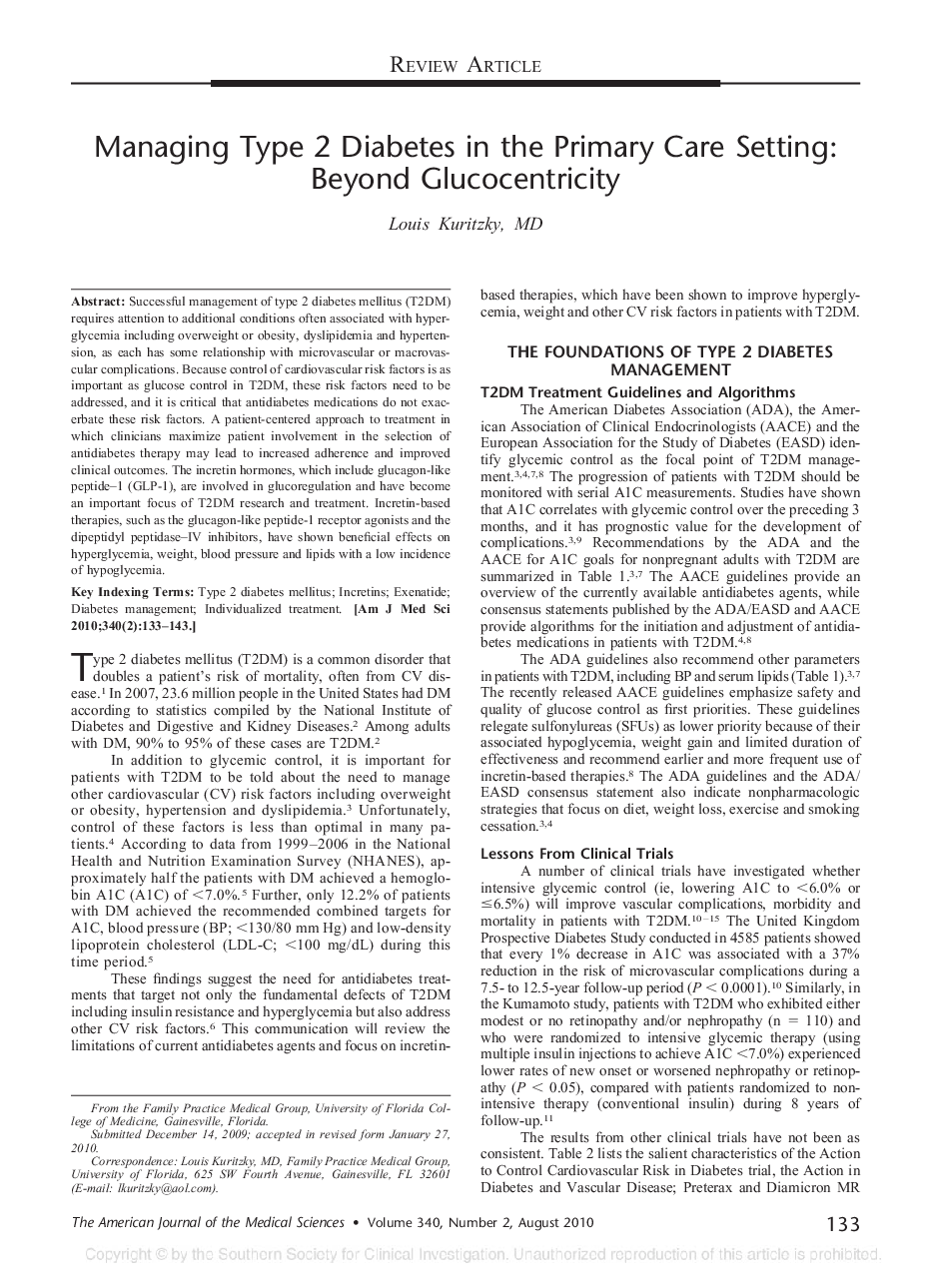| Article ID | Journal | Published Year | Pages | File Type |
|---|---|---|---|---|
| 2864977 | The American Journal of the Medical Sciences | 2010 | 11 Pages |
Abstract
Successful management of type 2 diabetes mellitus (T2DM) requires attention to additional conditions often associated with hyperglycemia including overweight or obesity, dyslipidemia and hypertension, as each has some relationship with microvascular or macrovascular complications. Because control of cardiovascular risk factors is as important as glucose control in T2DM, these risk factors need to be addressed, and it is critical that antidiabetes medications do not exacerbate these risk factors. A patient-centered approach to treatment in which clinicians maximize patient involvement in the selection of antidiabetes therapy may lead to increased adherence and improved clinical outcomes. The incretin hormones, which include glucagon-like peptide-1 (GLP-1), are involved in glucoregulation and have become an important focus of T2DM research and treatment. Incretin-based therapies, such as the glucagon-like peptide-1 receptor agonists and the dipeptidyl peptidase-IV inhibitors, have shown beneficial effects on hyperglycemia, weight, blood pressure and lipids with a low incidence of hypoglycemia.
Related Topics
Health Sciences
Medicine and Dentistry
Cardiology and Cardiovascular Medicine
Authors
Louis MD,
